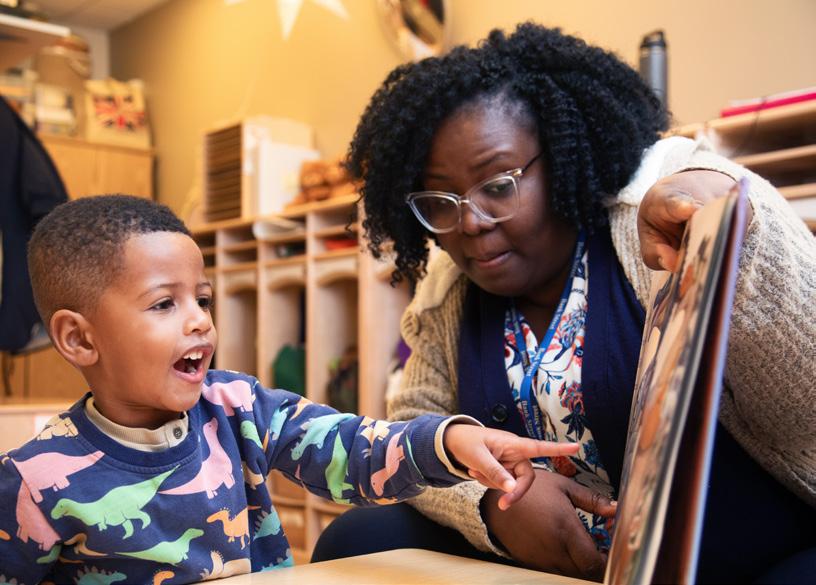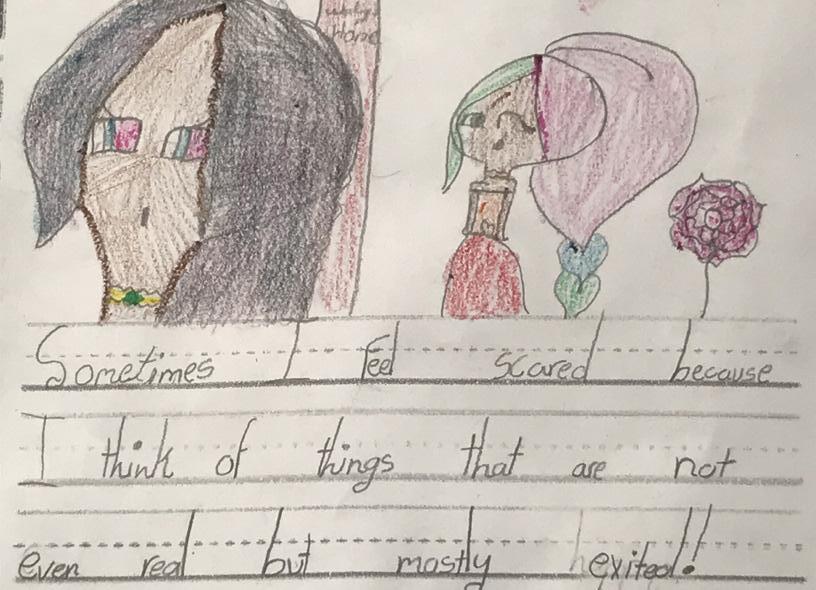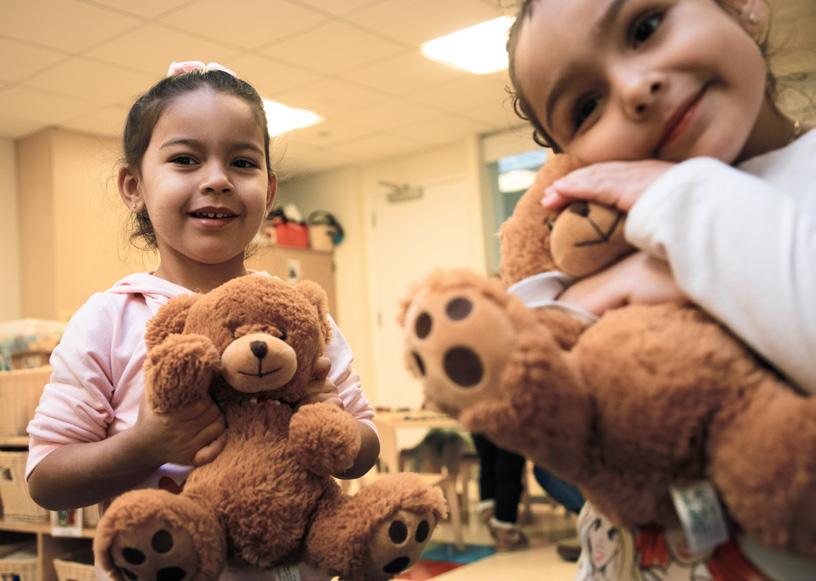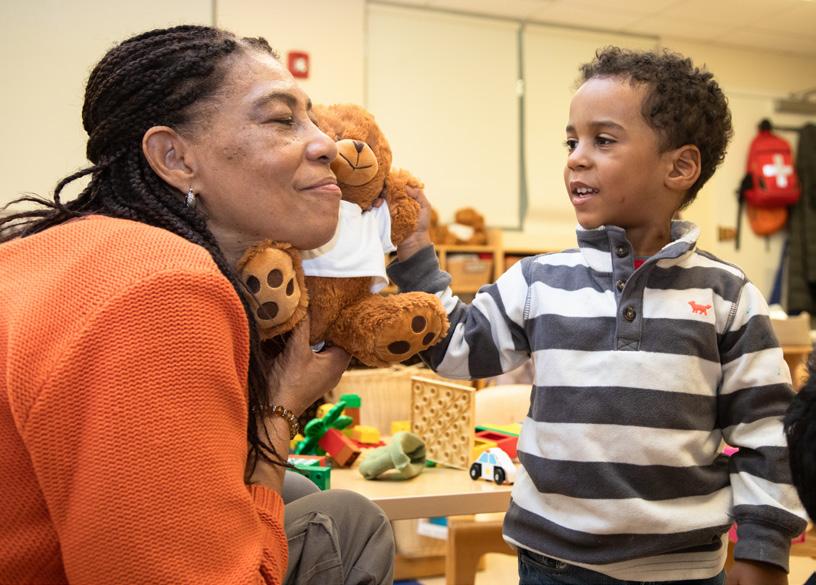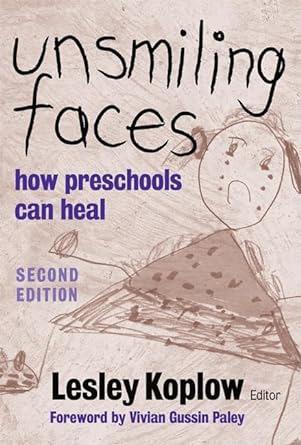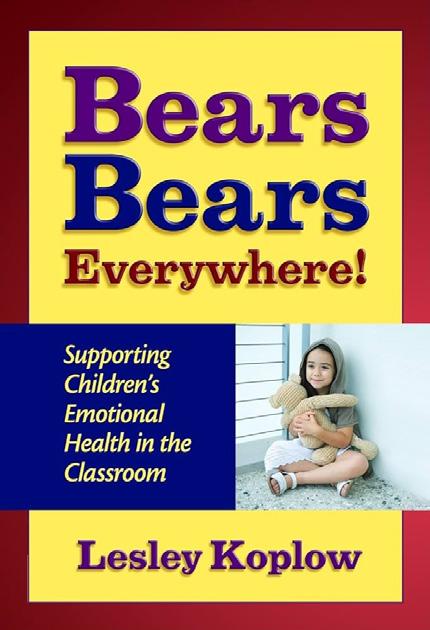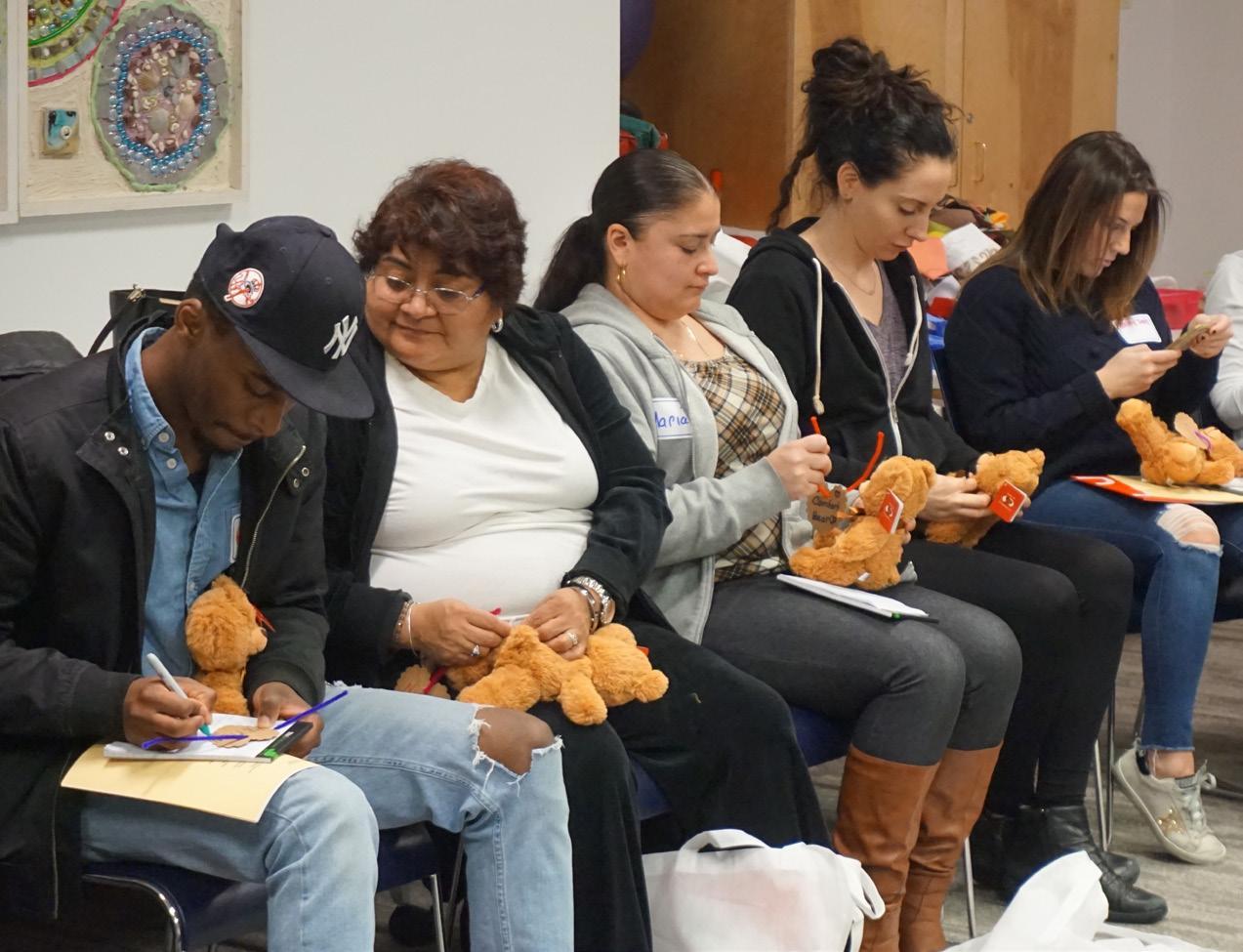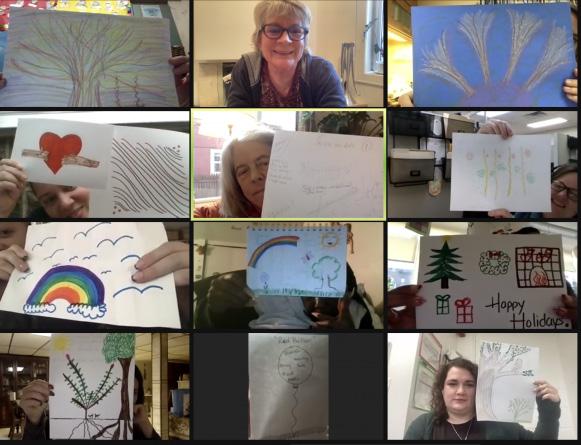The Center for Emotionally Responsive Practice
WHAT IS EMOTIONALLY RESPONSIVE PRACTICE?
Emotionally Responsive Practice (ERP) is built on a deep understanding of child development, research on the impact of social and emotional experiences on the developing brain, and the proven positive effects of working partnerships between educators and school-based clinicians. ERP harnesses the well-documented connection between emotional wellbeing, learning, and peer relationships.
THE CENTER FOR EMOTIONALLY RESPONSIVE PRACTICE: A UNIQUE APPROACH
The Center for Emotionally Responsive Practice at Bank Street partners with schools, child care centers, and other programs to foster learning environments that support the mental health and emotional wellbeing of children. Our services help educators, administrators, social workers, and other professionals understand children’s emotions and behavior through the lens of child development and life experience, so that they can provide safe and nurturing communities where children thrive. Unlike many social-emotional support programs, the center’s approach to Emotionally Responsive Practice also prioritizes the mental health and wellbeing of the adults who care for children, so they are better equipped to empathize with and respond to children’s emotional needs.
OUR SERVICES
Professional development and coaching provide powerful, evidence-based techniques to develop educators to become attuned to the emotional needs of children and foster a positive climate in the classroom.
Support groups for teachers, paraprofessionals, leaders, coaches, and social workers to share ideas, reflect on their own practice, and consider how to approach challenges they may be facing in their work.
Workshops for families to learn new parenting techniques, reflect on their own upbringing, and find community. Our family workshops create a bridge from the classroom environment to the home environment, which nourishes continuity of ERP in all areas of a child’s life.
Specialized clinical supervision to ensure mental health specialists have the support and resources to effectively address the emotional needs of the children they work with.
OUR PHILOSOPHY
Children deserve to learn in an environment that reflects and validates their whole selves, including their unique identities and individual stories. Educators and mental health professionals trained in ERP are able to understand and respond to children’s full range of emotions while ensuring that school is a safe and vibrant place for meaningful and joyful learning. Environments designed with ERP in mind are primed with opportunities for social-emotional development and relationship-building, which sets the stage for success in school and in life.
CULTIVATING EMOTIONAL WELLBEING: CLASSROOM-FRIENDLY TECHNIQUES
Emotionally Responsive Literacy and Bibliotherapy
Using reading and writing as vehicles for knowledge and self-expression, children learn to process emotions and life experiences, including change and loss. These tools help build resilient communities and increase mindfulness, connectedness, and a sense of belonging. This helps reduce feelings of isolation and the risk of mental health challenges, such as post-traumatic stress disorder and depression, promoting holistic wellbeing for all.
Reflective Language and Drawing
These techniques are a relationship-based stepping stone for children, which help them regulate so they will be able to reflect and plan. Safe and caring relationships with adults help children develop an understanding of social and emotional cause and effect, improve connection and communication, and build empathy for themselves and others.
Use of Comfort (Transitional) Objects
Through the center’s signature program, Teddy Bears in Classroom Practice, children develop warm relationships with teachers and connect to their classroom community. Transitional objects also support children’s ability to regulate and self-comfort, reduce isolation and soothe anxiety, and allow processing and healing of trauma when it is present.
Pretend Play, Drawing, Building, and Story Acting
Through play, children use powerful symbolic processes to make meaning, build understanding and integrate new life experiences into their understanding of the world around them, positively impacting their wellbeing as well as their learning. ERP helps teachers learn to thoughtfully facilitate children’s play and respond to the symbolic themes that emerge.
Every child has the right to be supported by their parents/caregivers, teachers, school leaders, and community to grow, learn, and develop. When all children, regardless of their social histories, are educated together, with a shared and inclusive program like ERP’s Teddy Bears in Classroom Practice, everyone benefits. It helps build empathy, compassion, and community that allows for student voice, expression, and engagement... to foster a supportive, caring environment where students feel safe that they can learn and where teachers feel they can teach.”
– Reginald Higgins, Deputy Superintendent, District 2 New York City Public Schools
A HEALING-CENTERED LENS FOR TRAUMA-INFORMED PRACTICE
While ERP-trained educators understand the well-documented effects of trauma on children, they do not see trauma as a deficit. Rather, they know that children with a history of trauma can reach their full potential through a healing-centered, strengths-based approach that is rooted in relationships and self-expression. An ERP classroom diminishes feelings of isolation and promotes emotional resilience. With guidance from our team of experts, your staff will learn how to proactively implement routines and language in your settings that nourish wellbeing, support regulation, joyfully affirm identity, and promote healing.
OUR WORK IN PRACTICE
The Center for Emotionally Responsive Practice harnesses evidence-based techniques and strategies that respond to the needs of all children and lay a healthy groundwork for social and emotional development. In every classroom, there are children who make their needs known, and children whose needs may be less visible. ERP offers pathways and strategies to support and celebrate all children, including those for whom school is a challenge. Our techniques have been well documented in the following publications:
Emotionally Responsive Practice: A Path for Schools That Heal (Koplow, 2021)
Emotionally Responsive Practice as Trauma-Informed Care: Parallel Process to Support Teacher Capacity to Hold Children With Traumatic History (Blachly, Dean & Koplow, 2020)
Over the Hills and Far Away: Inviting and Holding Traumatic Stories in School (Blachly, Dean & Koplow, 2018)
Bears, Bears, Everywhere: Supporting Children’s Emotional Health in the Classroom (Koplow, 2008)
Unsmiling Faces: How Preschools Can Heal (Koplow, 2007)
Creating Schools That Heal (Koplow, 2002)
Additionally, the center has produced curriculum plans based on thematic units, an advisory plan for middle school settings, and practice manuals addressing the needs of children with traumatic experiences for several organizations, including Save The Children USA, Women in Need, and the Center Against Domestic Violence. The center has also produced practical guides for use in K-8 after-school spaces.
Incorporating the Teddy Bear Curriculum at PS 65 has been instrumental in supporting the emotional, social, and academic needs of our young scholars. Our teddy bear program has helped bring a greater sense of safety and warmth into the classroom as students are learning to develop positive attributes, such as caring, sharing, and helping. Providing for these teddy bears has afforded our students to put their thinking and caring into action, which fosters the development of building friendship, acceptance, diversity & inclusion.”
– Jasmine Gonzalez, Principal, PS 65, Mott Haven New York City Public Schools
ANNUAL EMOTIONALLY RESPONSIVE SCHOOLS CONFERENCE
Every fall, the Center for Emotionally Responsive Practice invites teachers, social workers, administrators, and others to Bank Street’s Emotionally Responsive Schools Conference to build community while deepening their understanding of child development, social and emotional learning, parent engagement, and techniques for creating safe and nurturing school communities. The conference is held in a hybrid format to expand access to educators across the country. To learn more about the conference, visit bankstreet.edu/erp-conference
PAST COLLABORATIONS AND CURRENT PARTNERSHIPS
Since 1998, the Center for Emotionally Responsive Practice has worked with hundreds of programs in the New York City area and beyond, including public, private, and charter schools; Head Start programs; and a variety of organizations, including YMCA, Women In Need, The Children’s Aid Society, and the Center Against Domestic Violence, among others. The center has received funding from a number of foundations, including the Robin Hood Foundation, Save the Children USA, New York City Council, New York State Hurricane Relief Fund, and the Van Ameringen Foundation. We have partnered with schools in stable times as well as in times of specific need, such as when affected by socio-political circumstance, moments of loss and grief within a school community, a public health crisis like the COVID-19 pandemic, or natural disasters, like Hurricane Sandy. Our 2023-24 New York City Council Grant focused on supporting children of asylum seekers in schools.
PARTNER WITH US
The Center for Emotionally Responsive Practice is experienced in addressing the emotional needs of all children from infancy through adulthood, and our services are adaptable to all types of programs. We’d love to have a conversation with you to design a package of services to fit the needs of your program. If you’re interested in scheduling a consultation, please email us at erp@bankstreet.edu or call 212-961-3430.
On-site, hybrid, and online formats available
Training, coaching, and workshops can be provided in English and Spanish, and many of our materials and resources are also available in Spanish


